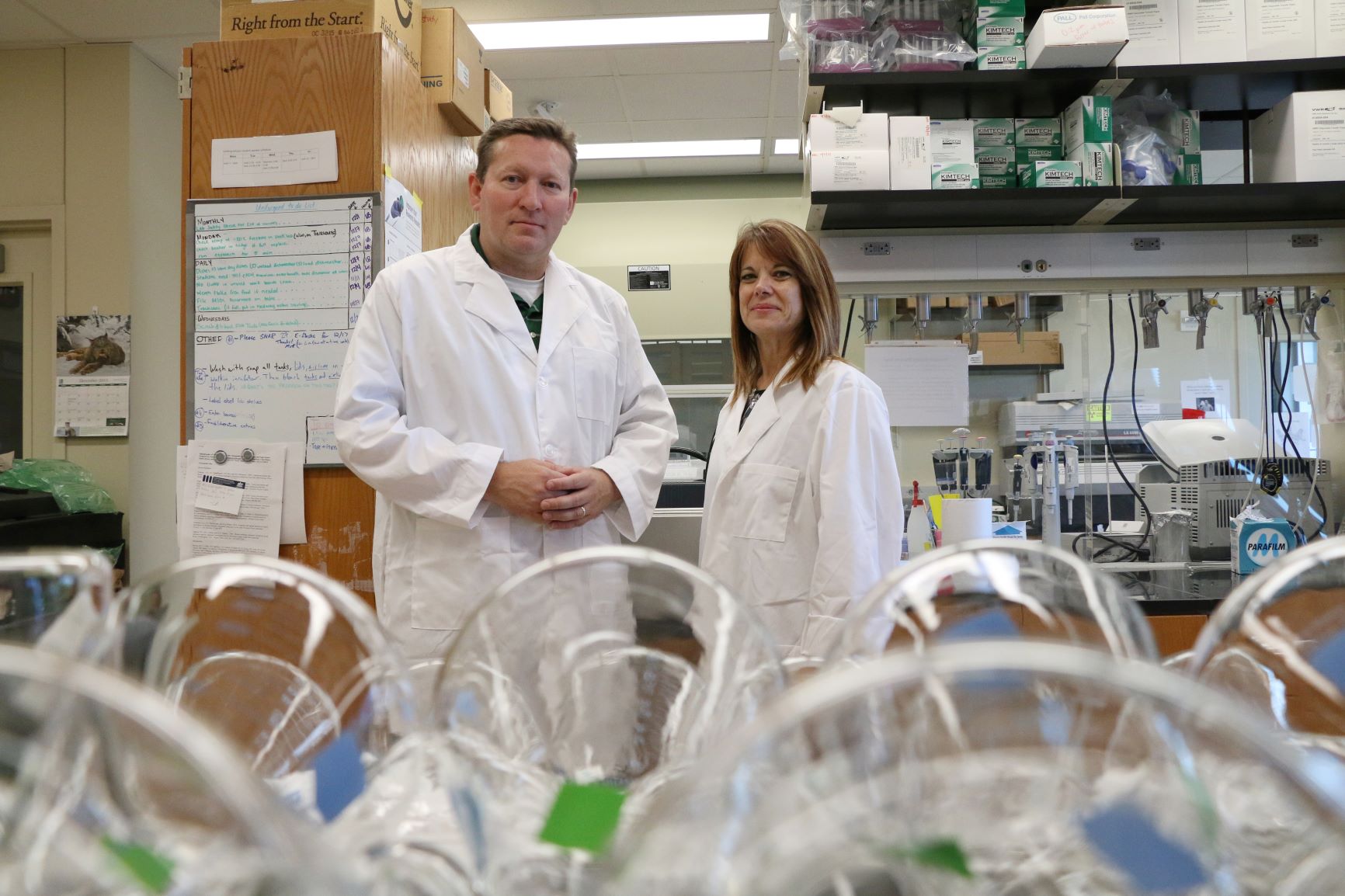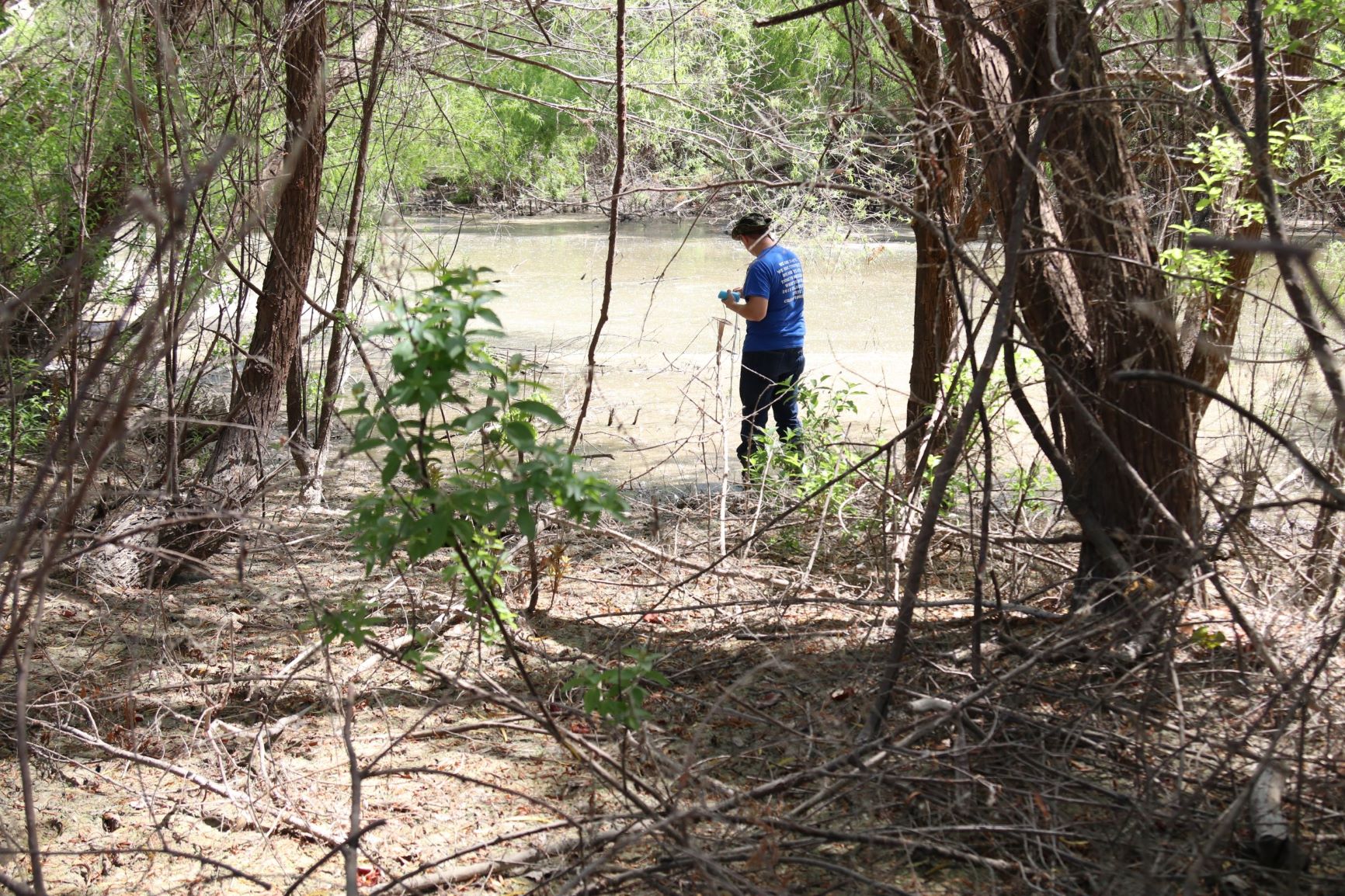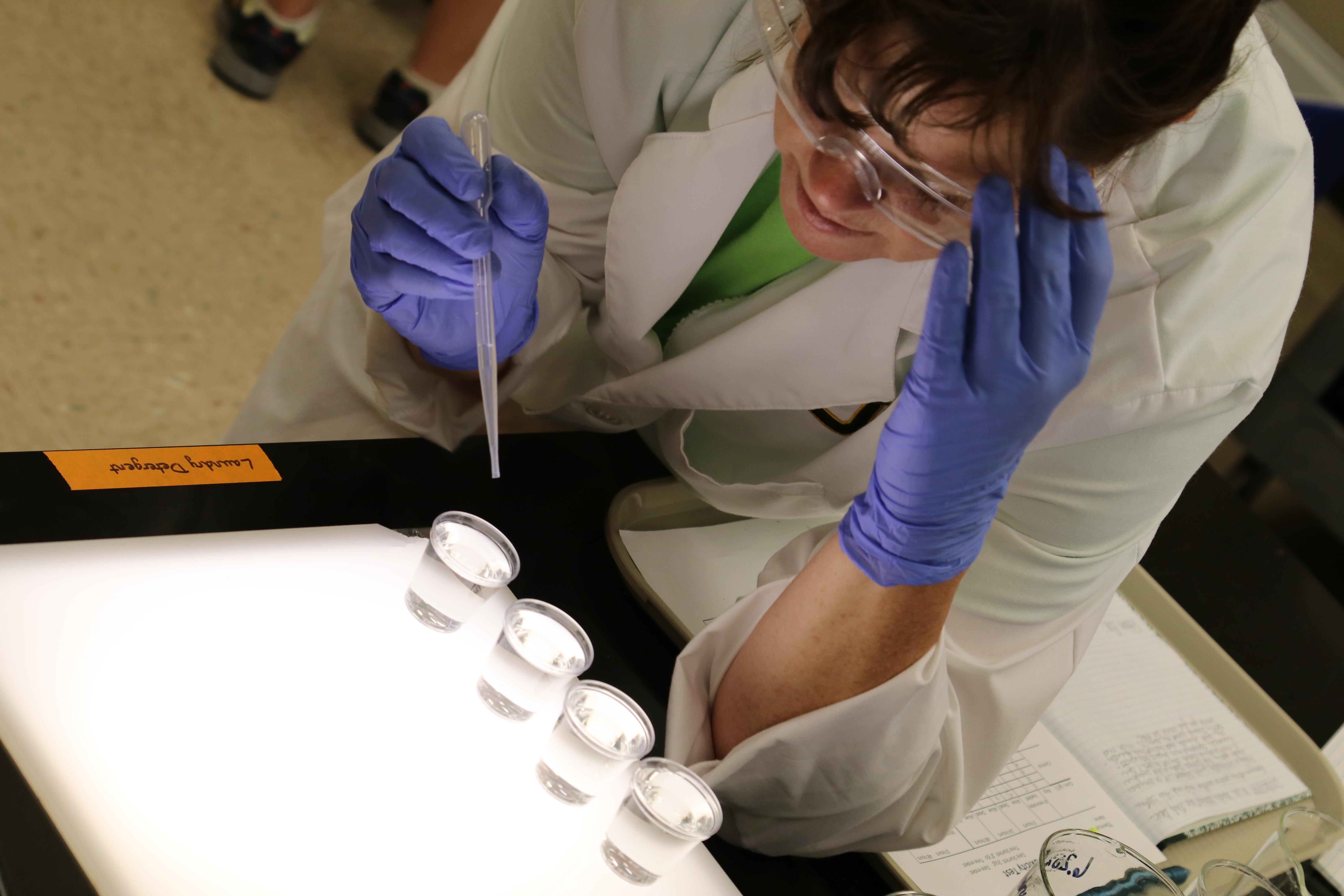Local Teachers to Join Baylor Scientists and Science Educators on Field-based Experience at Lake Waco Wetlands



Contact: Meg Cullar, School of Education, 254-710-6435
Follow SOE on Twitter at @BaylorSOE
Follow Baylor Media Communications on Twitter: @BaylorUMedia
WACO, Texas (July 25, 2018) – A federal grant of $91,000 from the Environmental Protection Agency (EPA), plus matching support of $30,000 from Baylor University, will bring together Baylor scientists, science educators and local teachers in an effort to teach the next generation about water quality and reuse.
From July 30 through Aug. 3, 20 Waco-area science teachers from grades 4-12 will participate in a field-based professional-development experience based at the Lake Waco Wetlands (LWW). The program – “Immersed in the Wetlands: An Environmental Academy for Educators” – will engage the educators in inquiry- and field-based environmental education methods, so they then can share those methods with their own students in local classrooms.
“I’m a strong proponent of inquiry-based science, where students are actually doing science and looking for an answer to a question,” said Suzanne Nesmith, Ph.D., associate dean and associate professor in the Baylor School of Education, who is principal investigator of the EPA grant. “Very few educators have these field-based experiences in their own preparation, so they might not be comfortable with doing science in the field and are typically not providing these opportunities to their own students. You cannot help children build an understanding of the environment and have skills and abilities to take action if you simply talk to them in a classroom.”
Baylor scientists working on the project and serving as co-PIs on the grant include Nesmith; Bryan Brooks, Ph.D., Distinguished Professor of Environmental Science, College of Arts & Sciences; Chris Wynveen, Ph.D., associate professor of health, human performance and recreation, Robbins College of Health and Human Sciences; Cole Matson, Ph.D., associate professor of environmental science, College of Arts & Sciences; Bill Hockaday, Ph.D., associate professor of geoscience, College of Arts & Sciences; and Melissa Mullins, environmental education and outreach coordinator for Baylor Center for Reservoir and Aquatic Systems Research (CRASR), a partnership with the City of Waco. They are working in partnership with the Lake Waco Wetlands, a project of the City of Waco, which is directed by Nora Schell.
This cross-disciplinary group of Baylor faculty members and staff have collaborated before, beginning in 2012 with a project at the John Bunker Sands Wetlands in Dallas. Brooks and CRASR also partnered with Nesmith to add an educational component to a National Science Foundation grant in 2015.
Brooks — who focuses significant research on water quality, water reuse and the development of science-based approaches to manage complex environment and health issues — said water issues in Texas are of great importance and the role of wetlands is vital.
“Texas is at an intersection of rapid urbanization and population growth combined with climate variability from one year to the next,” he said. “Wetlands can be very important, serving as a natural filtering system as well as a wonderful wildlife habitat. But wetlands also play a role in disaster risk reduction; we know that wetlands systems — especially coastal wetlands — can be barriers for natural disasters.”
Brooks said that a robust educational effort is a “value multiplier” for scientific research and a key component in creating impact through research.
“That’s why we’re so eager to work with Dr. Nesmith and the School of Education,” he said. “We can have the best science in the world, but if we can’t equip the next generation of children and citizens to benefit from the discoveries that we make, how are we really going to improve the quality of life, especially in areas like water and health that are so profoundly important to local communities?”
A unique part of the EPA funding is the inclusion of sub-grants for participating teachers to request for conducting their own community service environmental project during the upcoming year. The teachers, through their school districts, may apply to obtain materials or equipment for classroom teaching and conducting service learning projects designed to build awareness and promote environmental literacy specific to wetlands issues and local water resources.
The overall EPA project, Nesmith said, is designed to have an impact locally and connect educators with information about their community.
“Water issues are worldwide but inherently local,” she said. “This project will help teachers and students find ways to improve their communities and make an impact in their own backyard, literally.”
The 20 teachers were chosen through an application process to participate in the workshop. They come from 14 area schools in five districts and one private school. With 12 teachers coming from SOE partner districts Waco and Midway ISD, Nesmith hopes that the experience also can have an impact on Baylor pre-service teachers who will be doing clinical student teaching in those schools and districts.
ABOUT BAYLOR UNIVERSITY
Baylor University is a private Christian University and a nationally ranked research institution. The University provides a vibrant campus community for more than 17,000 students by blending interdisciplinary research with an international reputation for educational excellence and a faculty commitment to teaching and scholarship. Chartered in 1845 by the Republic of Texas through the efforts of Baptist pioneers, Baylor is the oldest continually operating University in Texas. Located in Waco, Baylor welcomes students from all 50 states and more than 80 countries to study a broad range of degrees among its 12 nationally recognized academic divisions.
ABOUT THE BAYLOR SCHOOL OF EDUCATION
Founded in 1919, Baylor School of Education ranks among the nation’s top 20 education schools located at private universities. The School’s research portfolio complements its long-standing commitment to excellence in teaching and student mentoring. Baylor’s undergraduate program in teacher education has earned national distinction for innovative partnerships with local schools that provide future teachers deep clinical preparation, while graduate programs culminating in both the Ed.D. and Ph.D. prepare outstanding leaders, teachers and clinicians through an intentional blend of theory and practice.
ABOUT BAYLOR COLLEGE OF ARTS & SCIENCES
The College of Arts & Sciences is Baylor University’s oldest and largest academic division, consisting of 25 academic departments and seven academic centers and institutes. The more than 5,000 courses taught in the College span topics from art and theatre to religion, philosophy, sociology and the natural sciences. Faculty conduct research around the world, and research on the undergraduate and graduate level is prevalent throughout all disciplines. Visit www.baylor.edu/artsandsciences.
ABOUT THE ROBBINS COLLEGE OF HEALTH AND HUMAN SCIENCES
The Robbins College of Health and Human Sciences at Baylor University was established in 2014, a result of identified priorities for strengthening the health sciences through Baylor’s strategic vision, Pro Futuris, which serves as a compass for the University’s future. The anchor academic units that form the new College – Communication Sciences and Disorders, Family and Consumer Sciences and Health, Human Performance and Recreation – share a common purpose: improving health and the quality of life. The College is working to create curricula that promote a team-based approach to patient care and establish interdisciplinary research collaborations to advance solutions for improving the quality of life for individuals, families and communities. For more information visit www.baylor.edu/chhs.